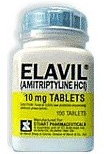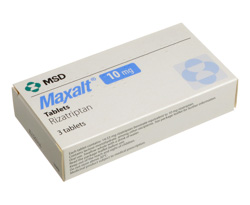Understanding Aleve
Aleve is a brand name for the nonsteroidal anti-inflammatory drug (NSAID) naproxen sodium. It is primarily used for the management of mild to moderate pain, fever, and inflammation. Aleve offers both over-the-counter (OTC) options and prescription formulations.
Pharmacological Profile
Naproxen sodium, the active ingredient in Aleve, works by inhibiting the enzymes cyclooxygenase-1 (COX-1) and cyclooxygenase-2 (COX-2). These enzymes are involved in the production of prostaglandins, which are compounds that contribute to inflammation, pain, and fever in the body. By inhibiting these enzymes, Aleve reduces the levels of prostaglandins and thus alleviates associated symptoms.
Indications for Use
Aleve is indicated for the relief of conditions such as arthritis, menstrual cramps, tendinitis, bursitis, gout attacks, and other types of acute pain. Additionally, it may be used to reduce fever in adults and children over the age of 12.
Dosage and Administration
For adults and children 12 years and older, the usual OTC dosage of Aleve is one pill (220 mg of naproxen sodium) every 8 to 12 hours while symptoms last. For the first dose, individuals may take two pills within the first hour. No more than two pills should be taken in any 8- to 12-hour period, and no more than three pills in a 24-hour period. The smallest effective dose should be used, and for the shortest duration necessary to control symptoms.
Forms and Strengths
Aleve is available in several forms, including tablets, caplets, gelcaps, and liquid gels. OTC Aleve products typically come in 220 mg of naproxen sodium. Prescription strengths of naproxen (such as Naprosyn), which contain a different salt of the same active ingredient, are available in higher dosages.
Drug Interactions
Aleve can interact with several other medications, potentially increasing the risk of side effects or decreasing the effectiveness. These interactions include, but are not limited to, anticoagulants like warfarin, other NSAIDs, corticosteroids, selective serotonin reuptake inhibitors (SSRIs), and some antihypertensive medications. It is important to disclose all current medications to a healthcare provider before taking Aleve.
Storage and Handling
Aleve should be stored at room temperature, away from light, excess heat, and moisture. It should be kept in its original container, tightly sealed, and out of reach of children. Proper disposal methods should be followed for expired or no longer needed medication.
Special Populations
Certain populations may require special consideration when taking Aleve. This includes individuals with a history of cardiovascular disease, gastrointestinal issues, kidney or liver impairment, and the elderly. Pregnant or breastfeeding women should consult a healthcare provider before taking Aleve due to the potential risks to the fetus or infant.
Observation for Response and Adverse Effects
Patients should be monitored for therapeutic response to Aleve, as well as any adverse effects. If pain or fever does not improve or worsens after taking Aleve, receiving medical advice is imperative. Possible adverse effects include gastrointestinal issues such as ulcers or bleeding, cardiovascular events like hypertension and heart attack, and renal impairment.







Reviews
There are no reviews yet.